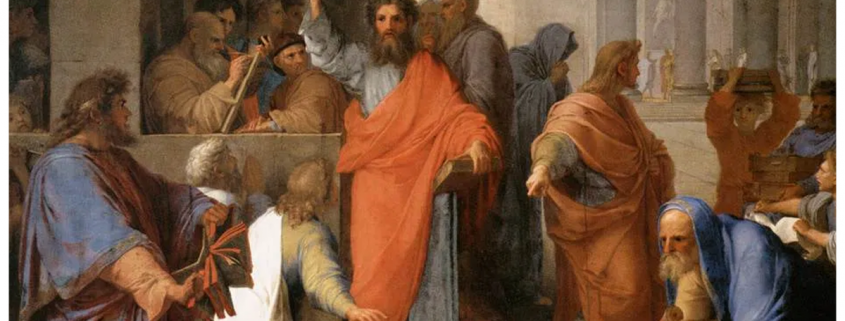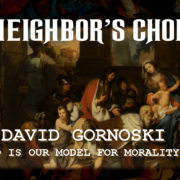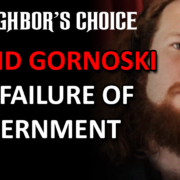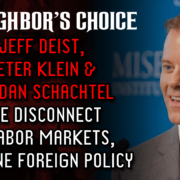The Exorcism of a Possessed Market
Now it happened, as we went to prayer, that a certain slave girl possessed with a spirit of divination met us, who brought her masters much profit by fortune-telling. This girl followed Paul and us, and cried out, saying, “These men are the servants of the Most High God, who proclaim to us the way of salvation.” And this she did for many days.
But Paul, greatly annoyed, turned and said to the spirit, “I command you in the name of Jesus Christ to come out of her.” And he came out that very hour. But when her masters saw that their hope of profit was gone, they seized Paul and Silas and dragged them into the marketplace to the authorities.
And they brought them to the magistrates, and said, “These men, being Jews, exceedingly trouble our city; and they teach customs which are not lawful for us, being Romans, to receive or observe.” Then the multitude rose up together against them; and the magistrates tore off their clothes and commanded them to be beaten with rods. And when they had laid many stripes on them, they threw them into prison, commanding the jailer to keep them securely.
~Acts 16:16-23 (New King James Version)
In the modern world of economics, there is much debate on the extent of government control for the smooth functioning of markets. Should we strengthen regulatory laws to make sure that standards of equality and fairness are upheld? Or should we do away with regulations altogether in favor of complete freedom? These are important questions that have split thinking individuals from all walks of life. But the questions are much more severe than we’d like to think. For example, the fate of many people who are now languishing in prison depends entirely on what we decide.
The above-mentioned passages of Timothy narrating one of Paul’s many miraculous deeds and his subsequent arrest indicate what should or shouldn’t be done. Here we see two imitators of Christ—Paul and Silas—walking into a bustling urban space akin to the angels entering the city of Sodom. A slave girl, owned from top to bottom by exploitative merchants with ties to powerful authority figures, directs all attention to these two apostles. She tells the truth about the two men but she does so in order to stir up a scandal.
There are all sorts of symbolism to be picked up here in an otherwise short and simple story. The slave girl is possessed by a demonic spirit. In the gospels, the text refers to the possessive spirit numerous times as collective forces attacking a singular host (see Mark 5:9, Luke 8:30 and Matthew 12:45). In anthropology, the demonic act of possession can be compared to the attacks of a persecuting crowd upon a single person. All things considered, we can assume that the slave girl is possessed not only by an entity of spiritual nature but also one that is very real in the social sphere as we shall see.
The slave girl points to the apostles and says they are “servants of the Most High God.” Her words are true but they are an incomplete truth which is the very nature of a crowd possessed by ideologies. The apostle James identifies half-truths as recognizing facts yet failing to act on them (James 2:19). He said: “You believe that there is one God. You do well. Even the demons believe—and tremble!” In anthropology, the slave girl’s recognition is typical of bipartisan posturing.
A possessed crowd will recognize the enormous cracks in a system that enslaves them but, oddly enough, they will still cling to that system. This is quite clearly evident in the world in which we live and, especially, with what is unfolding in the socio-political realm. In other words, during times of crisis, we keep going back to the game of conservatives vs. liberals or Democrats vs. Republicans whilst being ignorant of the fact that playing this binary game lands us within the crisis in the first place.
We read that the possessed slave girl profits her owners by the sinful act of fortune-telling. The apostles are not conscious of this fact, though they will be very soon. In a reading analogous to our modern-day existence, the slave girl is the crowd subject to big corporations and their government accomplices. As a result of an unholy partnership of monopolizing power, the corporations and their ruling allies end up profiting twice as much through illegal, immoral, and unfair means. It is perhaps worth noting that in this reading the concepts of immorality and illegality are intentionally combined, thus emphasizing that morality and legislation cannot exist separately.
Paul gets annoyed with the girl and proceeds to rid her of the invasive spirit. The owners of the slave girl, seeing that Paul has just taken away their business, seize both apostles and exercise their monopolizing power. In their sacrificial bloodlust, they even display a bit of bipartisan rhetoric by referring to Paul and Silas as ‘Jews’ in front of the authorities. How often does one get called ‘Republican, Democrat, or Libertarian’ in an accusatory manner? In any case, Paul and his companion soon find themselves beaten and thrown into prison. Hence, we see a perfect demonstration of government regulatory power and its sacrificial underpinning.
In these passages, the sacrificial system of using coercion to dictate market economy is utterly deconstructed and laid bare for all to see. The non-violent exorcism of Paul is treated as a violent crime thanks to the violent power of monopoly. But the exorcism of Paul had far-reaching consequences. Just as Jesus’ crucifixion at Calvary had started a chain-reaction of dismantling mob-violence, so too had Paul’s exorcism of the possessed slave girl. We can find this gradual spreading of Christ’s mercy, love, and self-sacrifice in the passages just following Paul and Silas’ arrest.
It turns out that Paul and Silas were miraculously set free from their chains in prison. The jailer, shocked at seeing the two men free, drew his sword and attempted to kill himself. But he was stopped by Paul. The story continues:
Then he [the Jailer] called for a light, ran in, and fell down trembling before Paul and Silas. And he brought them out and said, “Sirs, what must I do to be saved?”
So they said, “Believe on the Lord Jesus Christ, and you will be saved, you and your household.” Then they spoke the word of the Lord to him and to all who were in his house. And he took them the same hour of the night and washed their stripes. And immediately he and all his family were baptized. Now when he had brought them into his house, he set food before them; and he rejoiced, having believed in God with all his household.
~Acts 16:29-34 (New King James Version)
Now that the coercive institutions and systems have been deconstructed, we witness the freeing of captives. The deconstruction of scapegoating leads to nothing else except the liberation of the victims of violence. Instead of the tearing apart of families we see families rejoicing. What started at Calvary cannot be undone, no matter how much we try to bury or subvert it. We see this in the story of Paul and Silas’ imprisonment and we can certainly see it today as many are rightfully pointing out the injustices committed by the forces of monopoly power and lawless justice.
Can we impose regulations through the threat of violence? Jesus and Paul’s story has made it clear that we cannot. How then do we shape a free and virtuous market? That is where repentance comes into play. A free and prosperous economy depends on voluntary Christ-like interaction. If we live by the sword we shall perish by the sword; the same applies to economics as well as legislation. Morality and law cannot be separated. More precisely, Christ and the world with its economics, criminal justice, and governance cannot be separated.










Leave a Reply
Want to join the discussion?Feel free to contribute!